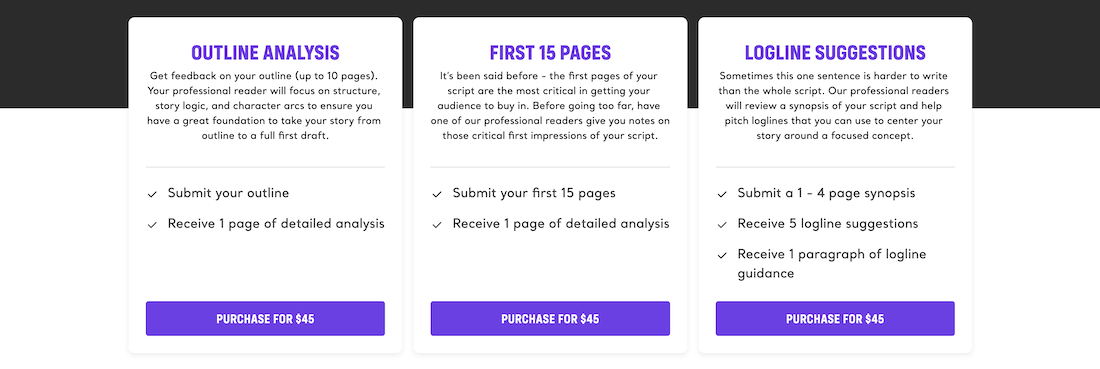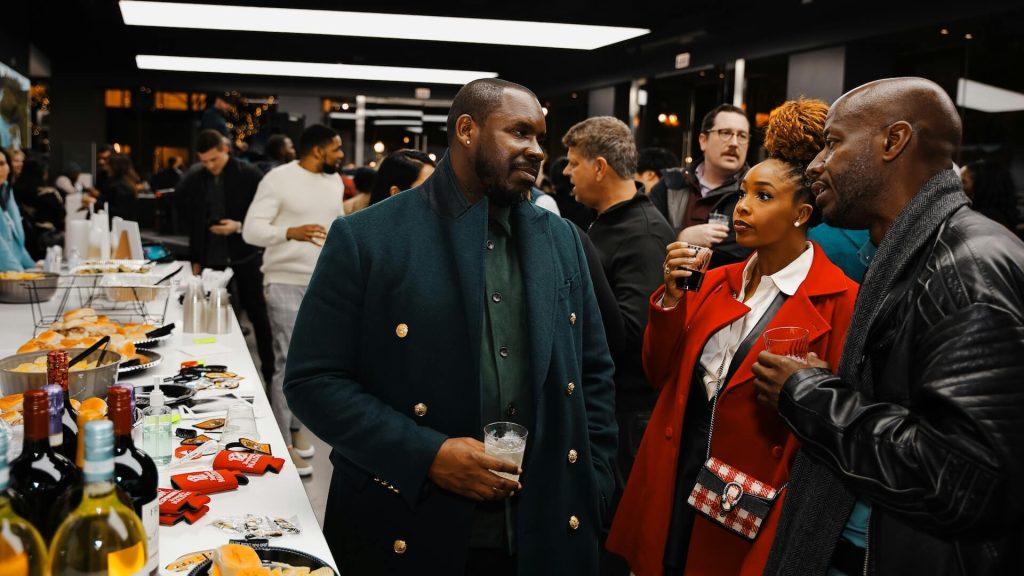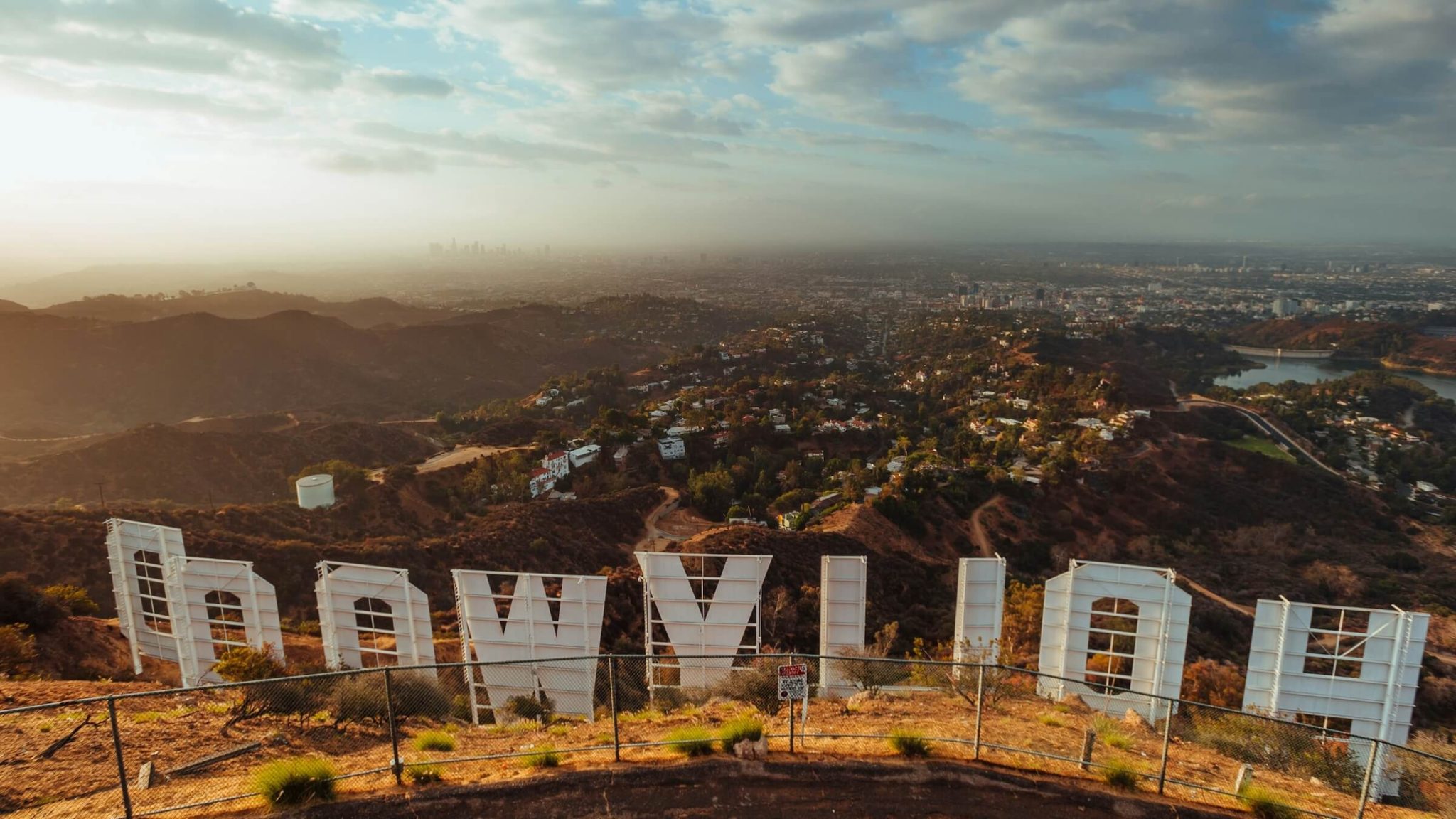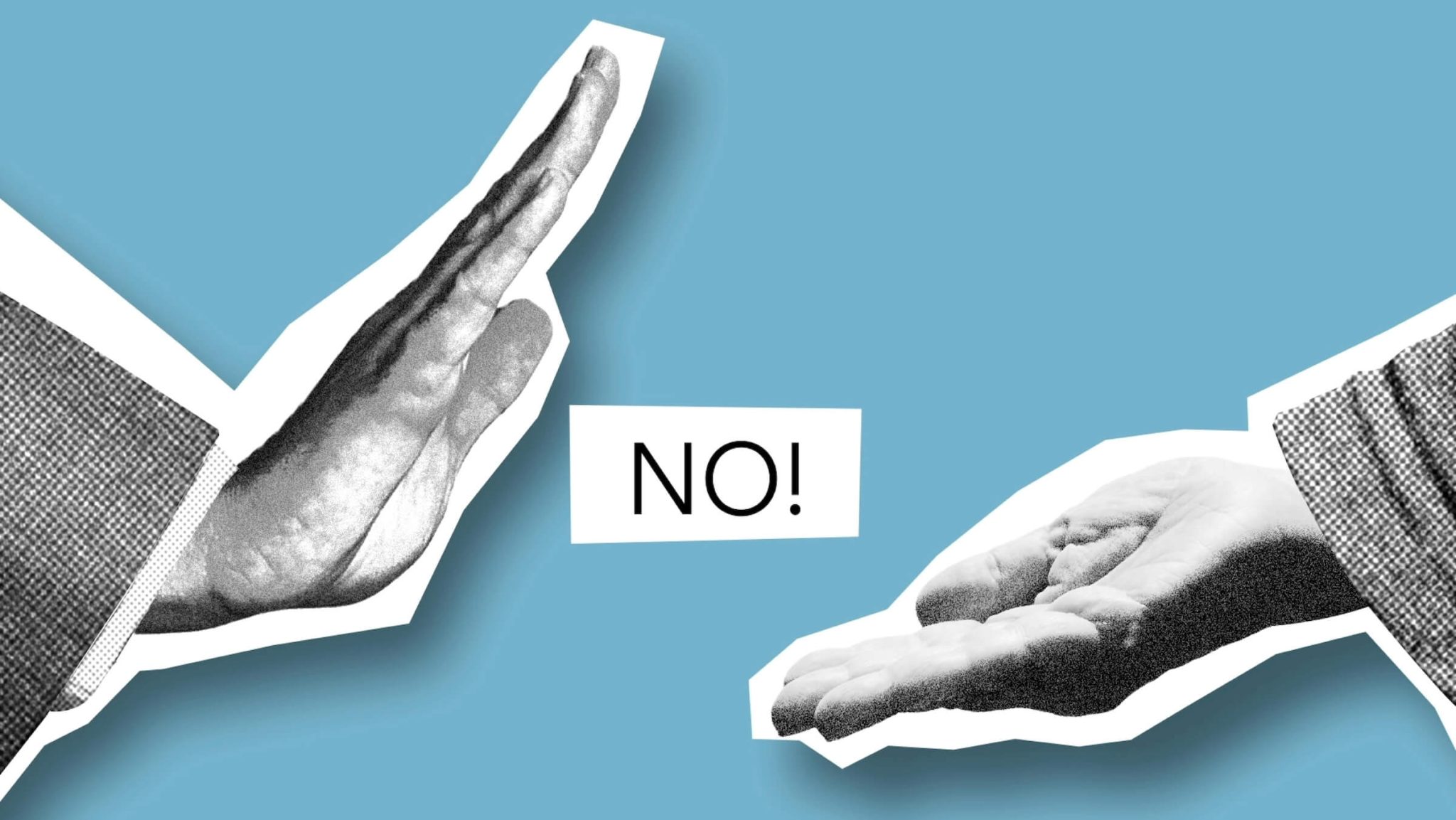How To Network with Industry Pros Without Being "That Person"

Being a novice and/or unknown screenwriter is tough. It’s a grind. You’re constantly being told you need to build a network of industry professionals and use it to move forward in your screenwriting career. But it’s a double-edged sword most of the time because to get noticed and build relationships you need to get your writing to the point where industry insiders feel they can benefit from your relationship, or someone they know can.
So you find yourself taxed with finding networking and mentorship opportunities. The problem is that so many screenwriters go about attempting this in the wrong ways.
I’ll try to give screenwriters some sound advice on how to go about reaching out to network with pro screenwriters and industry pros. I’m going to be pretty straightforward and honest with this, but know that it’s for the best.
The Proper Places to Network with Industry Insiders
If you’re out and about and manage to see an actor, producer, or director that you recognize from movies, trades, talk shows, and social media, it should go without saying that you shouldn’t be approaching them in their day-to-day lives asking for advice and help. You shouldn’t be giving them any cards or materials. And you certainly shouldn’t be expecting them to give you their contact info.
That’s just not how you want to approach anyone.
So, if building a network is so vital, where can screenwriters feel comfortable approaching industry insiders?
Writing Conferences
There are many great writing conferences out there that manage to sign pro screenwriters and industry professionals as guests, panelists, and speakers.
I’ve been a part of many in the past myself. I was usually paid. And for the ones I wasn’t paid for, they were usually more about me looking for proper opportunities to give back to the screenwriting community—or a favor for a friend or industry connection.
It’s during these events that I embraced writers coming up to me and talking shop. I even took on some mentorship relationships with various writers who approached me.
I don’t do this much anymore because I’m (thankfully) too busy with my own work.
But the point is that the pro screenwriters and industry insiders who make themselves available for these events are those ready and willing to help at that time.
Read More: How ‘Saturday Night’ Writer Jason Reitman Balances Truth and Fiction
 Film Festivals
Film Festivals
Film festivals—at least the major ones like Cannes, Sundance, Austin, Toronto, etc.—aren’t just about the submitted and featured films. In fact, those are often secondary to the true purpose industry insiders have when attending festivals.
They go to them to network and to do actual business as far as acquiring films, setting up deals with standout talent (actors, directors, and, yes, writers), and searching for hot prospects.
You usually need a notable film in the festival, or a hot property that has garnered interest, but that doesn’t mean you can’t go to the festival parties nearby bars and restaurants to mingle with some of the power players present.
General Meetings
I know. You need to be invited to general meetings (or calls) in the first place. But if you eventually manage to get to that level through successful screenwriting competitions or fellowship wins or your network, this is where you can sell yourself as a writer, as well as your work.
Screenwriting Competitions/Fellowships/Contests
Believe it or not, these are “places” you can connect with professionals. The best ones (Nicholl, Sundance, Austin, ScreenCraft, Final Draft’s Big Break, and studio/network programs) sign major industry names—or insiders working with big company names—to take part in judging and mentoring. High-placing screenwriters can open doors through these programs.
Read More: Best Screenwriting Mentorship Programs, Workshops and Fellowships
 Shots in the Dark to Network and Seek Screenwriting Guidance
Shots in the Dark to Network and Seek Screenwriting Guidance
OK, let’s say you’ve done all of the above—or eventually will—but you’re looking for some out-of-the-box ideas on how to connect with people in the know.
Cold Querying Through Email
It works. You may receive dozens upon dozens of rejections (or utter silence) before you get one single positive response, but that’s all it sometimes takes.
The key thing is knowing how to do it properly:
- Use IMDbPro to get email addresses for companies, managers, development executives, etc.
- Don’t approach agents because most of the name agencies have strict policies against accepting unsolicited queries, no matter how great your script may be. Also, most agents don’t come into play until there’s a deal to be made.
- Pitch one script, not your whole stack of scripts.
- Get to the point with a great logline.
- Don’t tell them how great and important your script is for them—let them decide that.
- Don’t go on and on about your love for film/TV and your personal story—there’s not enough time and everyone has love for film/TV and their own “worthy” personal stories.
If you want what I feel is the perfect query email guidance, check out how to write the perfect query letter to get your scripts noticed.
Connecting Through (Certain) Social Media Platforms
Let’s first start with some straightforward social media don’ts.
- Don’t try to friend them on their personal Facebook profiles.
- Don’t try to DM them on their personal Facebook profiles.
- Don’t try to friend or DM them on their professional Facebook profiles (usually reserved for company and career announcements for higher-profile people)
Just don’t do it.
I know it’s sometimes easy to find them. And, yeah, most screenwriters like this because it’s the least amount of work and effort needed.
Facebook isn’t the place.
OK, some more don’ts.
- Don’t use LinkedIn. Sure, it’s more professional than Facebook. And, sure, you may get the attention of an executive or two with a great pitch. But overall, not many industry insiders use the platform. Those that do are usually very low-level or are using it for their job searching. LinkedIn is a waste of time most of the time.
- Don’t use phone number searching apps or paid programs. It’s creepy. I’ve received a couple of calls on my personal phone number and it never goes well.
 How to Network Through Instagram, X, and TikTok
How to Network Through Instagram, X, and TikTok
If you want to take a shot in the dark and reach out to a pro screenwriter or industry insider, you can try these platforms.
X, formerly known as Twitter, is a horrible platform these days. But through it, as well as Instagram and TikTok, you can tag profiles in your own posts, hoping for a like or a response.
However, it doesn’t really add up to much. You can get some fun interactions, and maybe see if they’ll respond to a general question, but beyond that, don’t get your hopes up.
If you’re looking at DMing people on these platforms, it’s hit or miss. Most don’t answer their DMs—or don’t know how to. Or, if you’re like me, you don’t really see your DMs because you’ve turned off notifications.
Higher-profile names will certainly not be responding. Their profiles are usually run by a team anyway.
I do try to respond to people who connect with thank yous for stuff I’ve written and whatnot, but overall, there’s not going to be a lot of pitching and selling happenings on DMs.
If you connect with managers and development executives, sure, you could offer a cold query. And sure, they may even read it. But remember, for every single screenwriter who attempts this, there are hundreds of others doing the exact same thing.
Read More: How Screenwriters Should and Shouldn't Use Social Media
Using Network Maps for Personal Connections to Industry Pros
One of the most highly effective “out of the box” practices is mapping out potential connections you may have within the industry.
Let’s be real. If I’m a pro and I get 10 queries through email or social media from total strangers, it’s likely I won’t connect myself with any of them for various reasons (see below). But if my wife’s cousin has a friend who’s looking to get into the industry, I’m likely going to at least reach out to them more than I would for a stranger.
With that in mind…
Read More: 3 Maps Screenwriters Can Use to Build Their Industry Network
 How Screenwriters Should and Shouldn’t Network
How Screenwriters Should and Shouldn’t Network
If you’re going to pay attention to any of this piece, this is the section you should focus most on reading.
Too many screenwriters make the single mistake of asking too many of the connections they have made.
OK, you’ve connected with a development executive, manager, agent, producer, director, actor, A-List screenwriter, or a lowly (but working) blue-collar screenwriter like myself through whatever entryway.
- At a writing conference.
- You met and shared drinks at a film festival gathering place.
- You won or placed high enough in a contest/competition/fellowship to be awarded some industry insider correspondence.
- You successfully cold-queried them through email or social media.
- You’ve utilized networking maps and found industry insiders within your social connections.
What do you do now?
Gauge What They Are Ready and Willing to Do for You
Make no mistake, they are going to be somewhat reluctant to do too much for you, even if they come off as very accommodating and helpful.
Here are some quick guidelines on how you should and shouldn’t be with them.
- If they’ve said they’ll answer any questions you may have, that either means a couple of questions from the get-go, or a question or two every couple of months. Don’t email them every day or week with questions.
- Choose your questions wisely—and make sure they are broad questions about the industry.
- Don’t ask specific questions that require them to read pitches, a synopsis, a treatment, and especially a script (more on why below). That’s too much.
- If they have said they’d read a script, they mean ONE SCRIPT.
- If they have said they’d offer notes or feedback on a script, they mean ONE DRAFT.
- If they say they’re willing to read changes after they’ve given you notes/feedback, they mean ONE DRAFT of changes.
- If they haven’t offered to read a script, they likely don’t have the time to read one.
- If they haven’t offered to do anything for you, but have kindly responded to your query or social media post or DM, leave it at that. They’re just being polite.
Don’t Overstay Your Welcome
It’s all too common for screenwriters to do this when they’ve connected with an industry insider.
Back in the day, I made the same mistakes. We all do it. But you should avoid overstaying your welcome with them at all costs because they’ll end up blocking you or ghosting you. And rightfully so.
 Why Pro Screenwriters and Industry Insiders Can’t or Won’t Help You
Why Pro Screenwriters and Industry Insiders Can’t or Won’t Help You
I’ll speak from my perspective first. I get a lot of people wanting to pitch me their ideas to consider. They either want to “partner” with me to write them—which basically means they want me to use my contacts to get them a contract—or they want me to take their ideas or scripts to the companies I’m writing for.
I’m not an agent or manager. It’s not my job or place to represent a writer. And most screenwriters don’t know how much goes into a single script being considered, signed, and greenlit for production. I’m not going to be able to help you on that front.
That’s your journey. You need to figure those parts out.
I also can’t and won’t take pitches from anyone anymore. I’m very blessed right now to be under contract most of the time with a major production company, studio, or network. For the protection of them, myself, and you and your work, I won’t even read pitches anymore. If someone has queried me and they go into a pitch, I stop reading.
Why? Because I don’t want the seeds of anyone else’s original ideas in my head.
And I don’t want anyone to think that their overly conventional and obvious ideas, concepts, and characters were taken when they watch anything I’ve written, or, worse yet, see stuff from companies I’ve worked with and wrongfully assume that I somehow leaked those ideas to them.
Believe me. If pro screenwriters and industry insiders had the time to help everyone, many of us likely would. We’ve been where you are. We know what it is like to crave getting a foot in the door and getting industry insider advice from a pro.
Read More: Why Hollywood Can't Accept Unsolicited Material from Screenwriters
Where to Turn to for Screenwriting Help
I personally choose ScreenCraft to do so. Others sign up for writing conferences, panels, interviews, and mentorship programs to do so.
It’s not that we don’t want to help. It’s just that we can’t help everyone—and to say yes to one and no to another never feels right, even when we do so in moments where we feel we have the time or more personal connections with others.
- It takes a couple of hours to read a script.
- It takes a couple of hours to write good and worthy notes.
Asking someone to read your script is more than just a few hours of time commitment as well. It takes time to respond to emails and offer insight. And when you’re asking for feedback or notes, you’re asking them to engage their imagination and skills towards a project that is not theirs.
 Industry Pros Don't Want to Be the Bad News Bears
Industry Pros Don't Want to Be the Bad News Bears
Here’s the underbelly of it. A lot of screenwriters can’t handle rejection yet. And 95% of the stuff out there is either horrible or just not ready. So, screenwriters are indirectly asking industry pros to deliver this difficult-to-hear news.
I don’t know about you, but I hate denting or breaking people’s dreams with need-to-know truth.
That’s why most industry insiders can’t or won’t help you when you reach out. Don’t take it personally. Just keep looking for the ones that are in a place where they can and will help out.
But remember this: you need to learn to help yourself, too.
Relying on feedback isn’t going to help you down the road. And even if it’s a pro screenwriter or industry insider giving the feedback, it’s just an opinion. You need to learn to be objective about your own work, and then just focus on finding ways to get your work read.
Building a Network Takes Time
In Hollywood, there’s a common phrase—the cream will rise. It’s so true. If you put in the work, keep writing, create a stack of great scripts, network, and find opportunities to get them read, your scripts and your writing will get noticed when it’s destined to.
It’s all about being at the right place, at the right time, with the right script, and being connected with the right people. You accomplish this by doing all of the above to attempt to get to that place.
Sometimes it only takes months. Usually, it takes years. If you’re ready for that grind and to pay your dues, and if you’re patient enough to wait for that special moment when everything aligns, it’ll happen for you.
Trust me. It took me:
- Seven years to get representation (2006… but I have represented myself since 2008)
- Seven years to get meetings at studios
- Eight years to get my first paid contract (development deal with Lionsgate in 2007).
- 11 years to get my first produced script via writing assignment contract (2011 miniseries Blackout)
- Another six years after that to get another contract
- And it took me roughly 21 years overall to be a regularly employed and money-making screenwriter (10 Lifetime thriller contracts and counting, including nine produced within the last four years as of the writing of this piece).
I either did everything that I mentioned above as a screenwriter during that time, or I was on the receiving end of the table getting queried as described above.
 ---
---
Some of you reading this will see screenwriting success in a shorter period of time. Some will experience vastly superior success. Others will see some success, only to see it halt and never return. Some will sadly never see any success in screenwriting, but will hopefully find solace in knowing that you did what millions of people don’t do in life you pursued a dream, and you told some stories that were swimming in your head.
There’s no single journey. There’s no single right or wrong way to go on your journey. This piece is meant to steer you towards the best path possible, with less resistance than I had back in the day.
We all must fail before we can prevail. Learn from your own mistakes—and learn from mine (and other pro screenwriters and industry insiders that may help you along the way).
Check out our Preparation Notes so you start your story off on the right track!

Ken Miyamoto has worked in the film industry for nearly two decades, most notably as a studio liaison for Sony Studios and then as a script reader and story analyst for Sony Pictures.
He has many studio meetings under his belt as a produced screenwriter, meeting with the likes of Sony, Dreamworks, Universal, Disney, Warner Brothers, as well as many production and management companies. He has had a previous development deal with Lionsgate, as well as multiple writing assignments, including the produced miniseries Blackout, starring Anne Heche, Sean Patrick Flanery, Billy Zane, James Brolin, Haylie Duff, Brian Bloom, Eric La Salle, and Bruce Boxleitner, the feature thriller Hunter’s Creed, and many Lifetime thrillers. Follow Ken on Twitter @KenMovies and Instagram @KenMovies76
Tags
Get Our Screenwriting Newsletter!
Get weekly writing inspiration delivered to your inbox - including industry news, popular articles, and more!


 Film Festivals
Film Festivals Shots in the Dark to Network and Seek Screenwriting Guidance
Shots in the Dark to Network and Seek Screenwriting Guidance How to Network Through Instagram, X, and TikTok
How to Network Through Instagram, X, and TikTok How Screenwriters Should and Shouldn’t Network
How Screenwriters Should and Shouldn’t Network Why Pro Screenwriters and Industry Insiders Can’t or Won’t Help You
Why Pro Screenwriters and Industry Insiders Can’t or Won’t Help You Industry Pros Don't Want to Be the Bad News Bears
Industry Pros Don't Want to Be the Bad News Bears
























